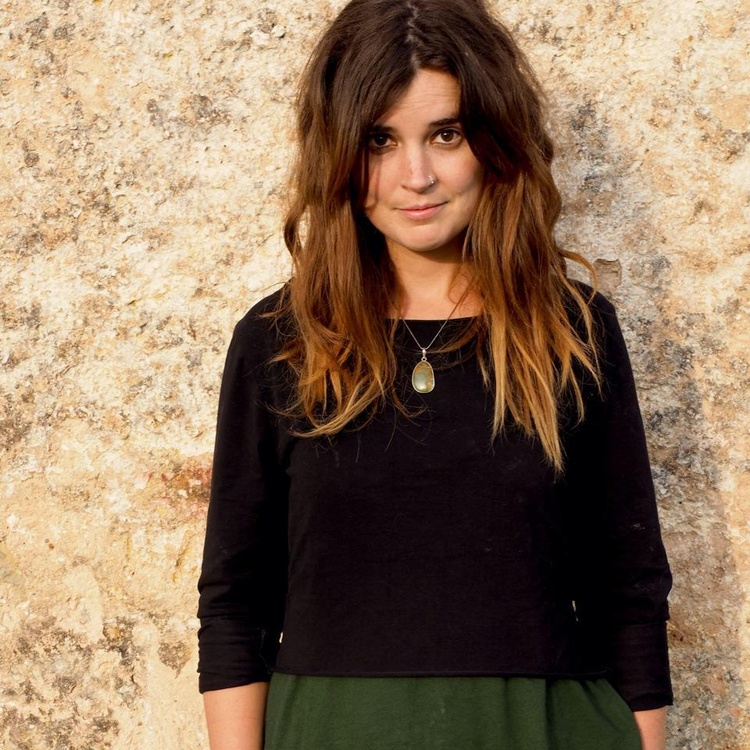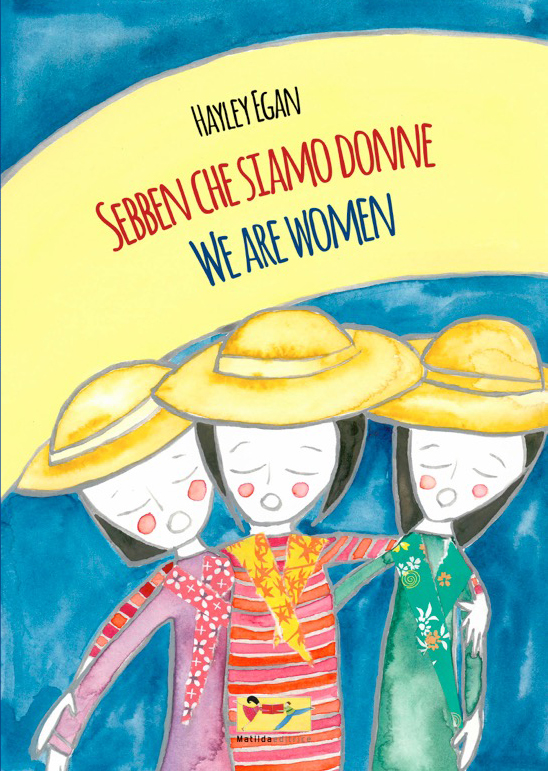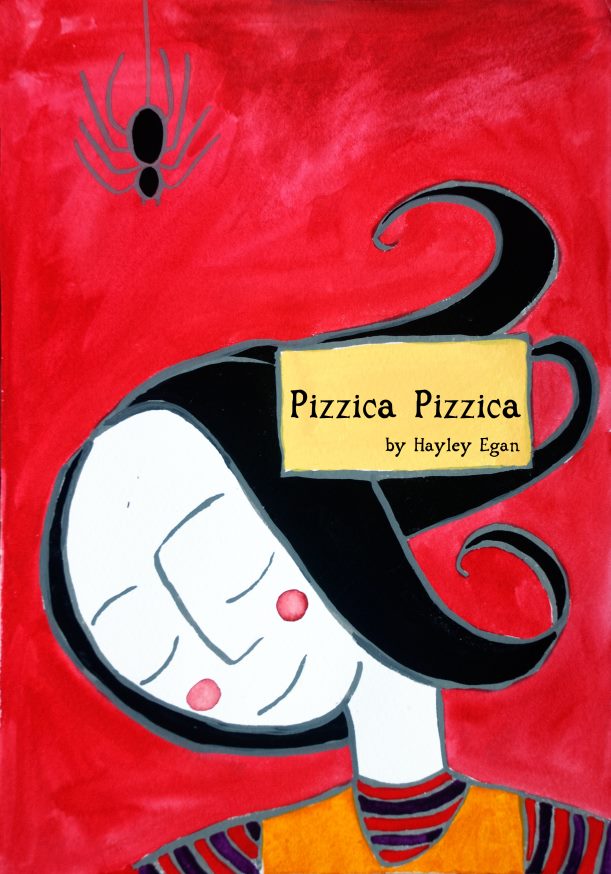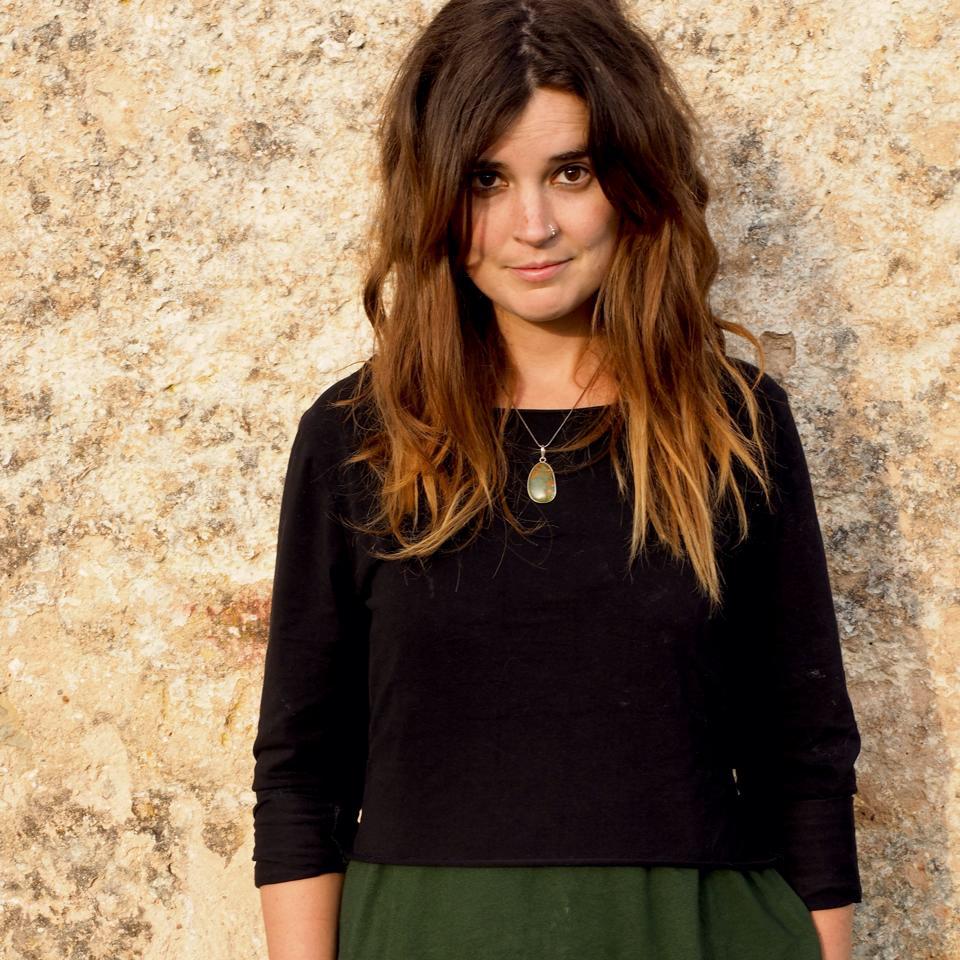What’s even more astonishing is that the well-travelled artist, musician and author only began speaking Italian as a teenager.
Hayley’s love affair with the Belpaese began when she finished high school and packed her bags for Siena, where she studied Italian at L’Università per Stranieri.
Having had little knowledge of Italian before stepping foot in Siena, Hayley puts her quick acquisition of the language down to two things.
“It was definitely a combination of studying the grammar while I was there and, of course, immersion,” she says.
When her studies in Siena came to an end Hayley returned to her native Australia, but having fallen in love with Italy, she continued to hop backwards and forwards between the two countries for years.
Somewhere along the way, she met her partner, Salvatore Rossano.
Though the couple are based in Melbourne, they have raised their daughter Coco, 5, and son Ravi, 3, in a bilingual household which is just as Italian as it is Australian.
The young family also lived in Spain for a stint, and still spends part of the year in Salvatore’s hometown of Ostuni, in Puglia.
In fact, it’s Salvatore’s origins which inspired Hayley’s first bilingual children’s book, Pizzica Pizzica.
Just like Hayley, Salvatore is a talented musician, and he specialises in the traditional music of Puglia that is more or less part of his DNA.
Having explained the ancient music and dance traditions of southern Italy – including the pizzica dance - on countless occasions to friends and family, Hayley experienced a light bulb moment.
“It’s difficult to explain to people in Australia how deeply felt cultural things are in Italy,” she says.
“I realised that it’s something we should be sharing here and all over the world with kids.”
A woman of many talents, Hayley had always dreamt of undertaking an illustration project, and in a natural progression, she began penning the words and illustrations to Pizzica Pizzica.
Through sponsorship of Museo Italiano, Association Pugliese and a crowdfunding campaign, Hayley was able to self-publish her book in 2013.
Two years later, a second edition of Pizzica Pizzica was published by Mammeonline, an Italian publishing house for children’s literature which highlights women’s issues and gender roles.
Founder of Mammeonline, Donatella Caione also organised book launches in Calimera and Foggia (Puglia), where Hayley’s creation was received with open arms.
While Pizzica Pizzica has circulated in schools in Italy, and has even been adapted as a textbook, Hayley highlights that it was never intended to be used as a learning tool in an academic environment.
Rather, she wrote it with the aim of evoking a “natural curiosity” among children towards its contents and bilingual nature.
“I think that art and literature are designed to spark an intellectual and creative response among both children and adults,” she adds.
Following the success of Pizzica Pizzica, Hayley went on to write her second book, We are Women (Sebben che siamo donne).
Released last September, the picture book focuses on an important facet of Italian history, which is little-known to many: the story of the Mondine.
The Mondine were a group of young women from northern Italy who worked tirelessly in the rice fields to manually weed and transplant the rice plants – a backbreaking task which was required for the cultivation of rice up until the 1960s.
“Talking was not allowed in the rice field, but singing was permitted, and even encouraged,” Hayley explains on her website.
“Singing became a way for the women to communicate with each other while working.”
It was through music that Hayley first discovered the story of the courageous Mondine.
Already familiar with southern Italian music, she asked a Milanese friend to teach her a song from the north.
In turn, Hayley learnt the lyrics and meaning behind ‘La Lega’, a folk song symbolic of the women’s protest against their working conditions.
After delving deeper into the history of the Mondine, Hayley decided that one day she would like to meet them and hear their stories first-hand.
Last year, when she was putting together her second book, Hayley fulfilled that desire.
She travelled to Bentivoglio, a stone’s throw from Bologna, and shared her book with a handful of the original Mondine.
“It is probably one of the most powerful experiences of my life; those women are absolutely amazing,” she recalls.
“It felt like I owed it to them to pass on their story to future generations, because they are very elderly and so passionate about activism and fighting for justice.”
In some ways, the determination for which the Mondine are admired is manifest in the talented author herself.
It’s a determination to share the stories that matter, regardless of where you come from or what language you speak, and to unite diverse communities through the beauty of art and literature.














